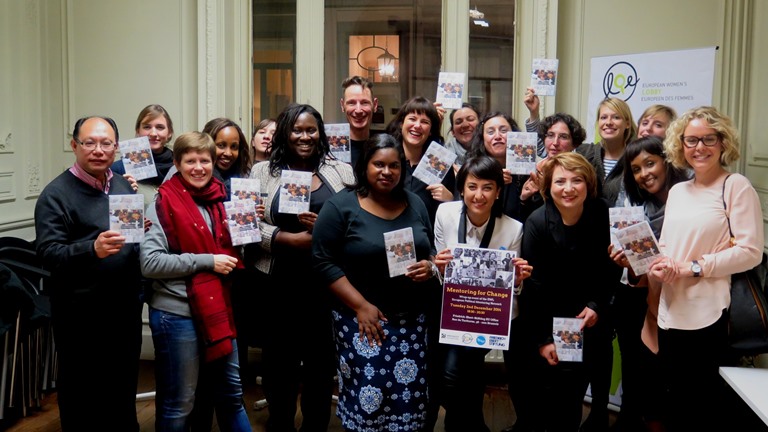[Brussels, 13 October 2011] A new book has revealed that young migrant women are excluded from policies aimed at the integration of migrant children in schools. The book is the result of an 18-month research project entitled “Integration of Young Migrant Women in the Secondary Education: Promoting Integration and Mutual Understanding through Dialogue and Exchange”, and compiles the results of the qualitative research implemented in five European partner countries – the UK, Germany, Spain, Cyprus, Malta, and Greece
In recent years the issues of gender and migration have received more attention by scholars,
researchers and policy makers in different national contexts as well as on an EU level. However,
despite acknowledgement that gender matters, the experience of migrant girls in school still remains
unexplored. Migrant girls, like migrant children,
are left out of most policy frames for integration since they are either perceived as accompanying
‘luggage’ for migrating adults or offspring of migration itself, i.e. children born in the host
country to migrant parents – or at least to one migrant parent. Within this context, the gendered
aspects of educational experiences and outcomes of migrant children, and particularly young
migrant women, remain under-analysed and under-theorised.
Policies developed for the integration of migrant children in schools usually recognise the
fluid and multiple aspects of cultural and language identities, but less so the dynamic character
of gender in relation to the transnational experience of migrants. Having abandoned past assimilation
approaches, schools in many European countries now try to build integration or social
cohesion policies and develop practices on the basis of respect for cultural diversity. However,
gender mainstreaming is absent from such policies, practices and strategies.
Interestingly, despite what one would expect, it is revealed that those countries with ‘more
history on migration’ and where gender equality is a seemingly a basic principle both in theory
and practice (as for example the UK), we nevertheless see that questions are still being raised
as to the extent to which the apparent commitment to gender, racial and ethnic equality is being
translated into practice. Whereas practices of integration and multiculturalism have been
“tried and tested” in the past and failed, as for example in the UK and Germany, in countries
such as Spain, Cyprus, Malta, and Greece where it is claimed that the migration phenomenon is
relatively new, these “failed strategies” are now being introduced. On the one hand, this makes
one wonder why countries with “new” migratory phenomena have not consulted or cooperated
with countries with a history of migration flows to see what has been successfully implemented
or not. On the other hand, the book clearly demonstrates that questions still remain unanswered in relation to policy frameworks
such as integration, multiculturalism, assimilation, and social cohesion and whether the results
of all these leads to the same common denominator: the exclusion and/or invisibility of migrant
women.
The full book can be downloaded here.

